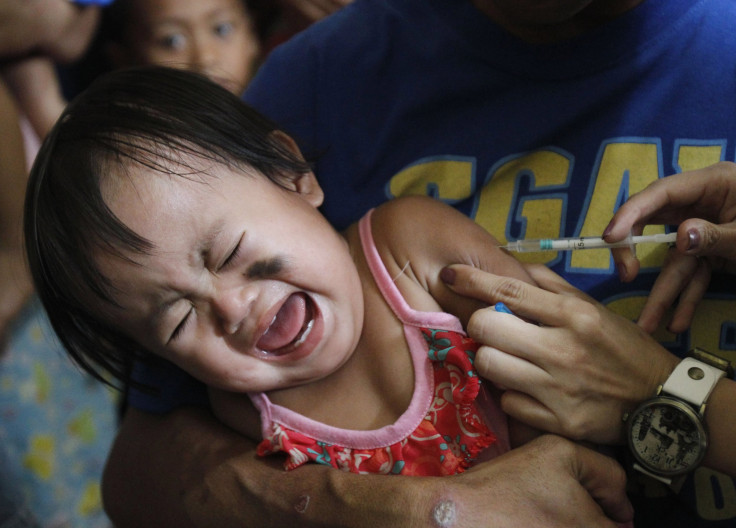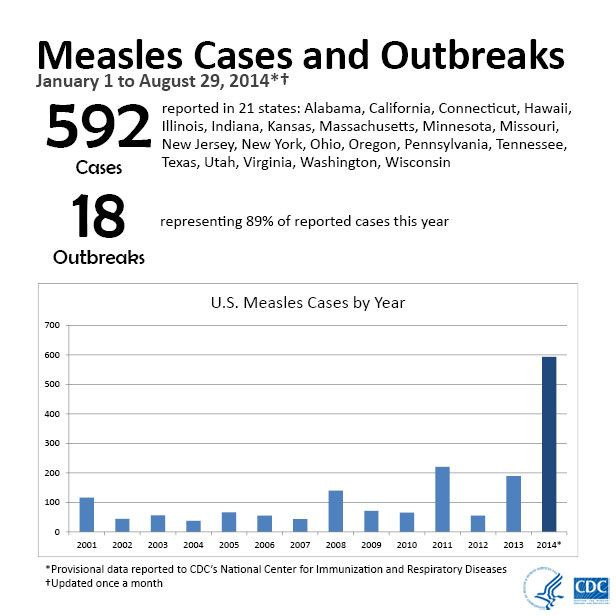Measles Outbreak 2014: 592 Cases Reported In US After Disease 'Eliminated' In 2000

Measles cases are on the rise in the U.S. this year, 14 years after national leaders declared that the disease had been eliminated within the country. The Centers for Disease Control and Prevention attributed many of the 592 measles cases and 18 outbreaks in the U.S. this year to parents not getting their children vaccinated.
Since the CDC said there were no measles cases in the U.S. in 2000, there have been reported cases. There were more than 200 in 2011, in part, due to a large outbreak in France that saw infected people travel to the United States, according to the agency. This year, a large, ongoing outbreak in the Philippines is impacting the jump in measles cases in the U.S., which has spread across 21 states.
The majority of the 592 measles cases involved people who weren’t vaccinated against the disease, which is a highly contagious virus that causes fever and a red rash. The disease is rare in the U.S. because most children are vaccinated. The 18 outbreaks reported to the CDC represent 89 percent of all cases in the U.S. this year, according to the agency.

Many people who refuse to vaccinate their children claim vaccines are linked to autism. The CDC cited a 2013 study that showed no links between autism and child vaccinations. While saying it is “possible” in “rare cases” that vaccinations might trigger autism, the advocacy group Autism Speaks encourages parents to vaccinate their children. The group is funding autism research, including studies looking into vaccination history.
“We strongly encourage parents to have their children vaccinated for protection against serious disease,” Autism Speaks says on its website. “We recognize that some parents still have concerns about vaccines, particularly if they have a child or relative with autism. We urge them to find a health practitioner who will consider their concerns and help them ensure the well-being of their child. Establishing open communication and trust with a physician who understands each child and family is the best strategy for keeping children healthy.”
© Copyright IBTimes 2024. All rights reserved.






















